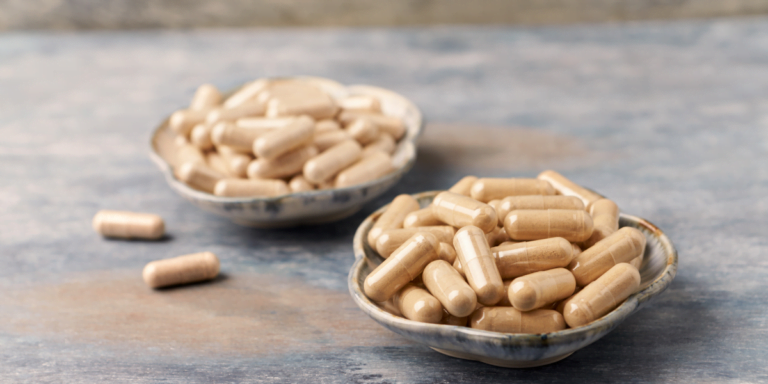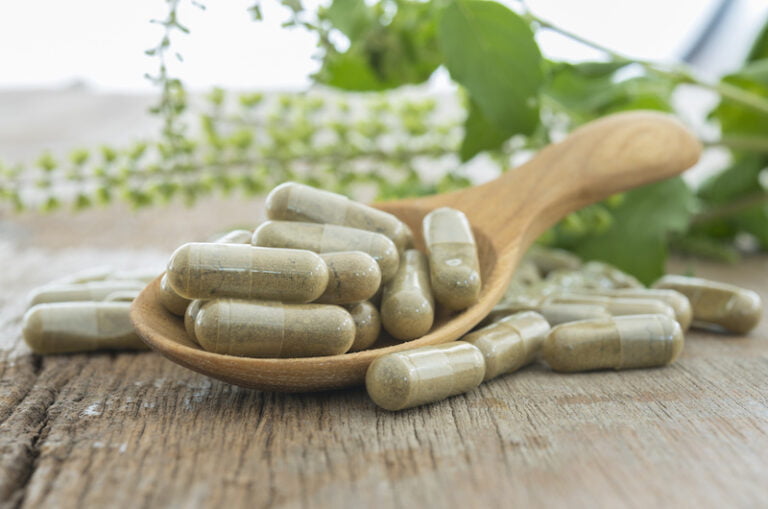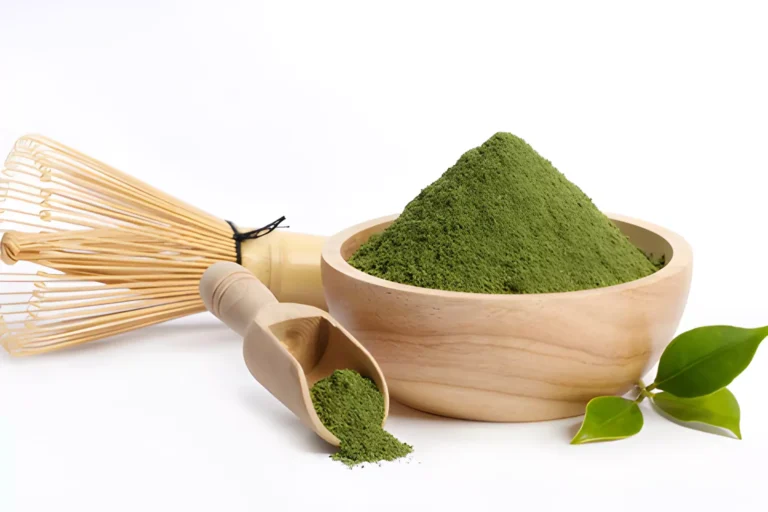Ashwagandha Benefits for Women: 10 Reasons to Take It
Ashwagandha is a popular Ayurvedic herb for centuries for its medicinal and health benefits. Ashwagandha is an adaptogen that can help the body cope with stress and restore balance. It is also known as Indian ginseng, winter cherry, or withania somnifera. The root of the ashwagandha plant is the most commonly used part, but the leaves, seeds, and flowers can also be consumed.
Ashwagandha has many benefits for women’s health, especially for those who are dealing with hormonal imbalances, stress, anxiety, fatigue, mood swings, fertility issues, sexual dysfunction, menstrual problems, menopause symptoms, and cognitive decline. In this article, we will explore 10 reasons why women should add ashwagandha to their diet and how it can improve their well-being.
Incredible Benefits of Ashwagandha for Women Health
Here are the 10 most important ashwagandha benefits for females that can improve overall health conditions.

1. Improves sleep quality
One of the most common problems that women face is poor sleep quality, which can affect their physical and mental health. Lack of sleep can lead to low energy, mood disorders, weight gain, impaired immunity, and increased risk of chronic diseases. Ashwagandha may help improve sleep quality by reducing stress, anxiety, and cortisol levels, which are the main factors that disrupt sleep. It also promote relaxation and calmness, which can help women fall asleep faster and stay asleep longer.
2. Reduces stress and anxiety
Stress and anxiety are common issues that affect women’s health and well-being. Women are more likely to experience stress and anxiety than men due to various biological, social, and psychological factors. Ashwagandha is a herb that can help reduce stress and anxiety in women. It works by balancing the body’s stress response system and lowering cortisol levels, the primary stress hormone.
Studies suggest that ashwagandha can significantly reduce stress and anxiety in women. For example, one study found that women with chronic stress who took ashwagandha had lower stress, anxiety, and cortisol levels than those who took a placebo. Another study found that women with generalized anxiety disorder who took ashwagandha had reduced anxiety and depression.
3. Boosts energy levels
Many women struggle with low energy levels, which can make it hard to do the things they want and need to do. Ashwagandha is an herb that may help boost energy levels and improve physical performance. It improves mitochondrial function, oxygen uptake, blood flow, and nutrient delivery.
Studies have shown that regular consumption of ashwagandha can improve energy levels in healthy adults, women with chronic fatigue syndrome, and women with breast cancer.
4. Improves mood and overall well-being
Mood and well-being are essential for women’s health. Women are more likely than men to have mood disorders, such as depression and anxiety. These disorders can make it hard to cope with stress, enjoy life, and maintain relationships. Ashwagandha supplements may help improve mood and well-being in women.
It works by balancing the levels of neurotransmitters, which are chemicals that regulate mood. Ashwagandha also reduces inflammation and oxidative stress, which are linked to mood disorders. Studies have shown that women who took ashwagandha have improved mood, reduced anxiety, and enhanced cognitive function.
5. Balances hormones
Hormones are chemicals that control many body functions, such as metabolism, reproduction, and growth. Hormonal balance is important for women’s health, as it can affect their menstrual cycle, fertility, pregnancy, menopause, and overall well-being. Hormonal imbalances can occur for many reasons, such as stress, ageing, diet, lifestyle, and genetics. Symptoms of hormonal imbalances include irregular periods, acne, weight gain, hair loss, mood swings, hot flashes, and infertility.
Research suggests that ashwagandha may help balance hormones by regulating the endocrine system. It also regulate the levels of specific hormones, such as estrogen, progesterone, testosterone, thyroid, and insulin, which are essential for women’s health.
6. Boost fertility
Fertility is the ability to conceive and bear children. Fertility can be affected by various factors, such as age, stress, diet, lifestyle, environmental toxins, and health conditions. Fertility problems can cause emotional distress, relationship issues, and reduced quality of life. Ashwagandha may help boost fertility by improving ovarian function, enhancing egg quality, and increasing uterine blood flow. It may also reduce stress, inflammation, and oxidative stress, which can impair fertility.
Additionally, ashwagandha can improve sperm quality and motility, increasing the chances of conception. A study found that ashwagandha root extract improved fertility and pregnancy outcomes in women with subfertility, compared to placebo.
7. Improves sexual function
Sexual function is the ability to enjoy sex. It can be affected by many things, such as physical, emotional, and social factors. Sexual dysfunction is when you have trouble enjoying sex. It can cause stress, frustration, and a lower quality of life for you and your partner.
Ashwagandha is an herb that may help improve sexual function by increasing blood flow, lubrication, and sensitivity in the genital area. It may also enhance sexual arousal, desire, and satisfaction by balancing hormones and neurotransmitters that are involved in sexual response. Ashwagandha may also reduce stress, anxiety, and depression, which can interfere with sexual function.
Studies have shown that ashwagandha root extract can improve sexual function and satisfaction in women with sexual dysfunction and hypoactive sexual desire disorder.
8. Reduces PMS symptoms
PMS (premenstrual syndrome) is a group of symptoms that occur before a woman’s period. It can cause physical, emotional, and behavioral problems. PMS can affect women’s health, mood, and quality of life. Ashwagandha may help reduce PMS symptoms by balancing the levels of hormones, such as estrogen and progesterone, which fluctuate during the menstrual cycle.
Studies have shown that ashwagandha can improve the quality of life, mood, and sexual function in women with PMS. It may also reduce inflammation, pain, and stress, which can worsen PMS symptoms.
9. Reduces menopause symptoms
Menopause is the natural transition when a woman’s ovaries stop making eggs and hormones. This can cause symptoms such as hot flashes, night sweats, mood changes, and insomnia. Ashwagandha is an herb that may help reduce menopause symptoms by balancing hormones, reducing stress, anxiety, and depression, and improving bone density, cardiovascular health, and cognitive function.
Studies have shown that ashwagandha can improve quality of life, sexual function, and cognitive function in women with menopause.
10. Improves brain function
Brain function is the ability to think, learn, and remember. It can be affected by many things, such as aging, stress, and diet. Brain function can decline over time, leading to cognitive impairment, dementia, and Alzheimer’s disease. Ashwagandha may help improve brain function by enhancing neurogenesis, which is the formation of new brain cells.
How Long Does Ashwagandha Take To Work?
The effects of ashwagandha may vary depending on the individual, the dosage, the form, and the quality of the supplement. Generally, it may take a few weeks to a few months to show noticeable results. However, some people may experience immediate benefits, such as improved mood, energy, and sleep quality, within a few days of taking ashwagandha. The best way to take ashwagandha is to follow the instructions on the label or consult your doctor for the optimal dosage and duration.
What are the Side Effects of Ashwagandha on Females
Ashwagandha is generally safe for most women to take. However, some women may experience mild and temporary side effects, such as nausea, diarrhea, stomach upset, headache, drowsiness, or allergic reactions.
To avoid or minimize these side effects, start with a low dose of ashwagandha and gradually increase it as needed. Take ashwagandha with food or water and choose a high-quality ashwagandha supplement from a reputable brand.
Some women may need to avoid or limit ashwagandha, as it may interact with certain medications, supplements, or health conditions. For example, ashwagandha may lower blood pressure, blood sugar, and thyroid hormone levels. If you take drugs or supplements for these conditions, talk to your doctor before taking ashwagandha.
Ashwagandha may also increase the effects of sedatives, antidepressants, and anticoagulants. If you are taking these medications, be cautious when taking ashwagandha. Overall, ashwagandha is a safe and effective herb for most women. Still, it is important to talk to your doctor before taking it, especially if you have any underlying health conditions or are taking any medications.
Conclusion
Ashwagandha is a powerful herb that has many benefits for women’s health. Ashwagandha can help women cope with stress, anxiety, mood swings, fatigue, hormonal imbalances, fertility issues, sexual dysfunction, menstrual problems, menopause symptoms, and cognitive decline. Ashwagandha can also improve women’s sleep quality, energy levels, well-being, and overall health. Ashwagandha is generally safe and well-tolerated, with minimal or no side effects.
However, some people may need to avoid or limit ashwagandha, as it may interact with certain medications, supplements, or health conditions. Pregnant and breastfeeding women should also avoid ashwagandha, as there is not enough evidence to support its safety and efficacy during these stages. The best way to take ashwagandha is to follow the instructions on the label or consult your doctor for the optimal dosage and duration. Ashwagandha is a great way to add a natural and effective supplement to your daily routine and enjoy its excellent benefits for your health and well-being.




